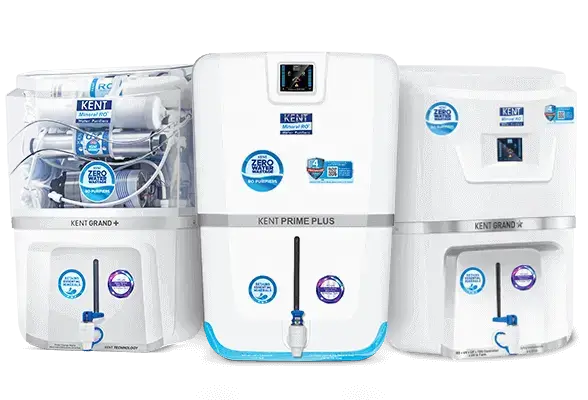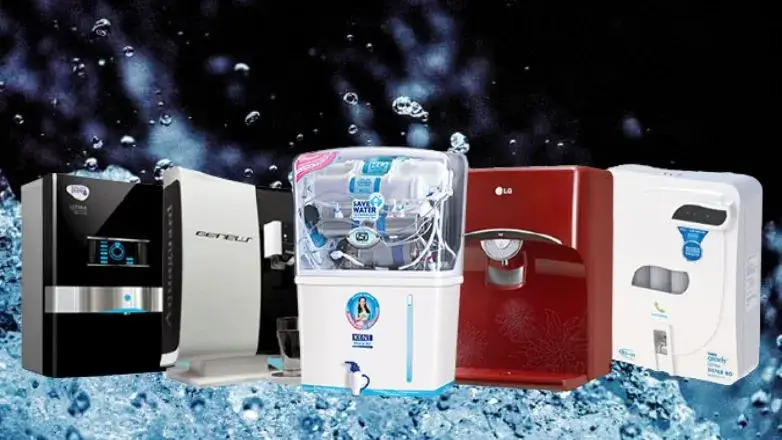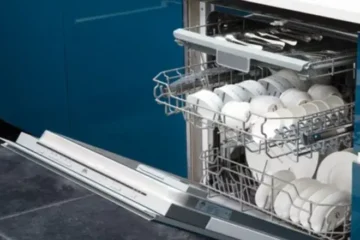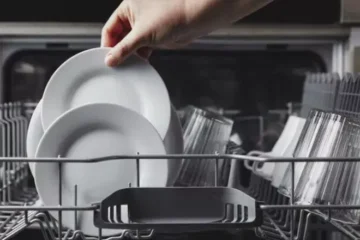Needless to say, water pollution is growing at an alarming rate and thereby the water quality is degrading day by day. Still, most people resort to traditional methods of water purification because of rising doubts about the technologies which is why we have bought Which is the Best Water Purifier for Home use in India and FAQS on water purifier ability.
It has to be understood, modern problems need an advanced approach for the solution, as it is your own as well as the family’s health that is at stake. In order, to clear the picture regarding water purifiers in India with the enhanced technologies of filters, RO for water purifier, & UV water purifier we have addressed some major FAQs on water purifier.
Table of Contents
- 1 Why do we need a Water Purifier? Is Water Purifier Safe for Health?
- 2 How Does the Water Purifier Work? | Which is the Best Water Purifier for Home use in India?
- 3 Does Boiling Water Remove TDS? Why TDS increased after Boiling Water
- 4 Which is The Best RO Water Purifier for Home use in India?
- 5 What are TDS ( Total Dissolved Salts )? What are TDS levels in Water?
- 6 Why UV filters can’t guard you? What are the disadvantages of UV Filter? Which is better Water Purifier UV or RO?
- 7 What is RO for Water Purifier? How Does Reverse Osmosis Work to Purify Water?
- 8 Why RO for Water Purifier Waste so much Water?
- 9 Is the RO for Water Purifier good for Health?
- 10 What is TDS Controller & Mineralizer? What is the difference between TDS Controller & Mineralizer?
- 11 Does Reverse Osmosis Water Purifier Enhance Taste?
- 12 What is the Maintenance Cost of RO Water Purifier?
- 13 How much Electricity Water Purifier Consume?
- 14 Can I Buy a Non-Branded RO for Water Purifier?
- 15 What is the Average Capacity of the Water Purifier?
- 16 ABS Plastic or Stainless Steel Tank – Which is Better?
- 17 Is it safe to Buy Water Purifier online at Best Price?
- 18 Will I get the Free Installation and Warranty if I Buy a Water Purifier online?
- 19 Which Water Purifier Brand in India offers the Best After-Sales Services?
- 20 Which is the Best RO Water Purifier in India?
Why do we need a Water Purifier? Is Water Purifier Safe for Health?
Certainly, the water that is made available to you at your home through groundwater source or by municipality contains several impurities, suspended particles, contaminants & added salts or chemicals. These impurities are so minute & small in size that most of them aren’t visible from the naked eye.
The common impurities include dissolved salts, organic compounds like algae, bacteria, viruses or cyst, chlorine often used for the treatment of water, and even toxic metals like lead, arsenic, or fluorine. The concentration of these contaminants is not the same every time and everywhere.
Hence, a good water purifier can go a long way in arresting these impurities from the water to make it clean, pure & 100% hygienic for drinking purposes. not only this, Best Water Purifier for Home use in India has additional technologies such as a TDS Controller or Minaeralizer that help to keep the balance of vital compounds such as Calcium, Sodium, or Magnesium which are essential for the human body.
All in all, not only does a water purifier keep the water safe & clean but also balances its pH to maintain its health factor & taste as well.
How Does the Water Purifier Work? | Which is the Best Water Purifier for Home use in India?
Well, the most basic method of purifying water that can be done at home as well includes filtering the water through the cloth, boiling it & adding alum to it. However, these methods are suitable for arresting the impurities which are mostly suspended solids quite visible in the water.
Furthermore, an advanced method uses resins that help in arresting the ions of acidic and alkaline nature from the water. But these aren’t usually available for domestic purposes.
On the other hand, very fine filters like a carbon filter, microfilter or ultrafilter technologies are available widely that uses very fine pore membrane in order to filter out impurities of size up to 0.01 micron
However, the most promising technology in purifying water is the RO process. RO for water purifier stands for Reverse Osmosis Process that can remove out all the dissolved salts & contaminants from the water up to size 0.0001 micron. Not to mention, this does have some of its disadvantages as well, which are discussed further.
Besides, the UltraViolet light greatly helps in arresting the organic matter and bacteria, viruses from the water, and is particularly used in addition to other mentioned techniques.
Does Boiling Water Remove TDS? Why TDS increased after Boiling Water
Not to mention, most people consider boiling water is one of the easiest ways to ensure the purity of water but that doesn’t justify the outcome properly. Boiling of water typically deals with making the water free of pathogens by killing organic volatile impurities like bacteria or viruses. On one hand, after boiling it is required to wait for a duration to cool the water for consumption. As well as, it includes handling of water in an open space giving free entry to pathogens in the surrounding.
Boiling of water, in any case, doesn’t tend to reduce or arrest the TDS impurities of toxic metals, slats & minerals. Even, UV purification has an upper hand on boiling because of the said disadvantages.
Which is The Best RO Water Purifier for Home use in India?
In particular, selection of water purifier isn’t a random job, but troubleshooting the issue with the water that is made available to you. The best way to analyze the water is to check it’s TDS that can be easily done using a Digital TDS meter. The TDS or Total Dissolved Salts is an index that gives an idea about the extent the water is contaminated and needs treatment.
Apart from this, you need to be clear about the water source and relative chemicals or toxins in the water. Based on these the most optimum choice would be to go for a RO for water purifier. However, if the TDS is low and within limits, UV water purifier & Micro-filter based water purifier can be easily selected.
What are TDS ( Total Dissolved Salts )? What are TDS levels in Water?
TDS or total dissolved solids involves all the minerals, toxic metals, salts, and ions present in the water. Basically, some vital minerals are essential for the growth of the body which includes Sodium, Calcium & Magnesium however there are some toxic metals like lead, fluorine, or arsenic these all are present in the water in very minute size. In other words, anything that is present in the water apart from suspended solids that can’t be visible through eyes constitutes under total dissolved solids.
It is measured in ppm or mg/L. In particular, a certain level of concentration is always recommended to be safe for consumption.
According to the BIS Standard of 10500-2012, 500 mg/L TDS level is quite desirable for drinking. However, it may happen a higher amount of arsenic, cadmium, or lead concentration may be present in the water of 500 mg/L TDS, which contaminates the water making it slow poison for the human body.
TDS of water can be checked easily at home with the Digital TDS meter available online. But knowing individual constituents of TDS in water is important.
Why UV filters can’t guard you? What are the disadvantages of UV Filter? Which is better Water Purifier UV or RO?
UV filter to say denotes the use of Ultra Violet light that is used in purifying the water. The limitation of its use is that it can only help in arresting or removing the organic impurities such as bacteria, viruses, or cyst. Other minerals or salts that constitute under TDS won’t be removed using a UV filter. For removing them, RO for water purifiers are quite considerable.
RO for water purifiers have an upper hand over the disadvantages of the Ultra Violet water purifier making them a better choice.
What is RO for Water Purifier? How Does Reverse Osmosis Work to Purify Water?
Well, according to basic science, water having a lower concentration of impurities will eventually move towards water having a higher concentration. That is the natural tendency of water and is called Osmosis.
However, if we pressurize water of higher concentration through a fine membrane it would move in the opposite direction. Thus, thereby, filtering the impurities, solids & minerals at the membrane filter and rejecting it out from the drain. This entire process is termed as Reverse Osmosis, Best RO water purifier for home user in India full form in short. ( Reverse Osmosis vs Osmosis )
Certainly, this is one of the most used and advanced mechanisms in purifying the water from the dissolved salts & minerals of size 0.0001 microns in order to provide healthy & safe drinking water.

RO Water Purifier (Source: Kent)
Why RO for Water Purifier Waste so much Water?
Since reverse osmosis or RO for water purifier uses a very fine pore membrane for the passage of water, a lot of micro-sized impurities get easily arrested in its filter. Under this mechanism, the filtered water that is made available to you gets free from all the contaminants be it traces of heavy toxic metals or even minute salts of essential minerals.
On n note, approximately for providing 25% of purified safe water 75% of reject water is generated. And, higher the TDS levels of water inductively higher would the reject water drained. This reject water is high in its TDS and thus is not safe for drinking purposes. However, it has to be due noted that this reject water can be useful for other household purposes such as cleaning, washing clothes, or even watering gardens, etc. As a responsible citizen, it becomes our moral duty to conserve and use this rejected water elsewhere suitable.
On the other hand, many brands, in particular, are launching RO for water purifier that helps you collect this reject wastewater in the tank to use it later accordingly.
Is the RO for Water Purifier good for Health?
Particularly, RO for water purifiers isn’t recommended for use where the TDS level of water available is in range of 300 – 500 ppm or even below this.
Water as a whole contains multiple compounds in it some of which are harmful to the human body such as lead, chlorine, arsenic, suspended solids and some of them are vital for the human body such as calcium, sodium, or magnesium. Altogether these are denoted as total dissolved solids.
RO for water purifier through its reverse osmosis mechanism helps to reduce the TDS of the water to a very low level thereby ensuring the water remains free from all the impurities. However, while doing this it tends to disturb the concentration of essential minerals present in the water. Thus, reducing the health aspect of water to a considerable level.
As a result, to take care of this situation several brands include TDS Controller or Mineralizer in their purifier to balance and replenish the RO purified water with essential minerals back.
What is TDS Controller & Mineralizer? What is the difference between TDS Controller & Mineralizer?
As discussed above, the water purified in RO lacks essential minerals so it becomes necessary to restore those minerals to make the water not only pure for drinking but healthy too.
All in all, TDS Controller & Mineralizer are the techniques incorporated to tackle this issue.
TDS Controller tends to bypass a small stream of incoming filter purified water to RO and later mixes that purified water with RO purified water.
Mineralizer, on the other hand, consists of a mineral cartridge that works on the principle of ionization & electrolysis to release Copper & Silver ions to arrest toxins & organic impurities.
Mineralizer, on the other hand, consists of a mineral cartridge that works on the principle of ionization & electrolysis to release Copper & Silver ions to arrest toxins & organic impurities.

The Basic Difference between TDS Controller vs Mineralizer is:
| TDS CONTROLLER | MINERALIZER |
| 1. As 100% or not all of the RO purified water passes through it and there happens a mixing of RO purified & normal filter purified water, it has a good chance of not removing or lowering the heavy metals concentration in the water | 1. Since all of the RO purified water passes through it, basically all the heavy metals are arrested in the RO chamber so it doesn’t have the risk of heavy metals in the output water. |
| 2. It gives the flexibility to adjust the TDS levels in the water either to increase or reduce it accordingly. | 2. It is a set device, that gives no leverage to change the TDS of water. |
Check out more details on their Working, Advantages & Disadvantages: TDS Controller vs Mineralizer.
Does Reverse Osmosis Water Purifier Enhance Taste?
Basically, the taste of water you experience is because of the salts & minerals present in it. Higher the amount of dissolved salts saltier the water tastes. Since the RO water purifier works on removing almost all of the dissolved solids from the water that comes out as purified water becomes bland or rather may seem to be sweet comparatively to previous salty water.
However, with the TDS Controller or Mineralizer, the essential minerals are easily restored which helps in balancing the pH of the water to restore its natural taste.
What is the Maintenance Cost of RO Water Purifier?
Since the RO for water purifiers are continuously subjected to the foul incoming water containing contaminants and impurities after a while of purifying the filters, membranes may get chocked or fouled. All in all, this would drastically hamper the purification efficiency of the purifier leading to unsatisfactory output.
As a result, it becomes necessary to periodically check for the condition of consumable parts as well as the replacement of filter & membranes to keep the working of purifier effective.
Many brands nowadays hold their own standard AMC packages. these AMC or Annual Maintenance Contract covers the inspection of parts of purifier including all the electronic accessories along with replacing filters as well.
These packages may cost roughly from INR 4000 annually and may go up to INR 7500-8000 annually for the higher-end model. it is quite understandable, that the high-end model having several accessories would ask for a bit higher AMC package over the normal ones.
Altogether, it is suggested to consult the service provider and choose an AMC package for the safe working of the water purifier in a longer run.
How much Electricity Water Purifier Consume?
Surprisingly, the power consumption of water purifiers is quite economic. it doesn’t take up much of the power for their mechanism. Generally, the usage of power is mainly for the pump in the RO chamber and the UV lamp. In general, it may go about 1-2 units for a middle-sized family of 4 members.
However, if the water purifier is enhanced with extra modulations and features such as hot water dispenser or night guide lightning then the power usage varies a bit more than the average normal.
Can I Buy a Non-Branded RO for Water Purifier?
Certainly, it is not advisable or recommended to go for a non-branded water purifier especially for saving a few bucks in your pocket. Going for a non-branded RO for water purifier is directly risking your health.
These non-branded water purifiers may seem to be cheap and low budget but they have a low grade of filters, poor customer & after-sales services, their purification mechanism is not guaranteed to work optimally for a long run.
Most of them to cut the cost, eliminate the TDS Controller or Mineralizer, which directly effects the removal of essential minerals required for your body.
In short, it is better to spend a good amount towards branded good quality RO for water purifier for your health & hassle-free experience.
What is the Average Capacity of the Water Purifier?
Well, water purifiers indistinct of their technologies used like a gravity-based purifier, UF or MF filter-based, UV based or RO for water purifier they also come in different storage capacities that on average range between 6 liters to 10 liters and even more to like 20 liters.
On one hand, 6-7 liter capacity is well suited for bachelors and couples. Whereas, 8-10 liter capacity is a good option for a family of 4 members.
ABS Plastic or Stainless Steel Tank – Which is Better?
Specifically, storage tanks are of the important aspect in the water purifiers and should have concern towards their durability. No leakages or dust ingress should be allowed to prevent the purified water from any contamination.
Basically, these storage tanks should be such that it is capable of holding a high temperature of the water as well. All in all, brands have come up with ABS (Acrylonitrile Butadiene Styrene) Grade type of thermoplastic that has good thermo-resistance properties. Also, they are lightweight, non-toxic & durable.
On the other hand, steel is also preferred in manufacturing storage tanks as it can withstand high temperature & is likely durable as well. However, it is bulky compared to ABS Plastic tanks.
Altogether, ABS Food grade plastic tanks are quite convenient as they include lesser maintenance hassle.
Is it safe to Buy Water Purifier online at Best Price?
Least to say, choosing a product online is truly a combination of user experience with the online website. However, if you tend to opt buying from trustworthy reputed sites such as Amazon or Flipkart, the experience is likely to grow on a good note along with good deals as well.
Apart from this, you can get easy installation at your home/office, customer reviews, quick comparisons, and discounts on credit or debit cards as well.
Will I get the Free Installation and Warranty if I Buy a Water Purifier online?
After you have decided on the brand of water purifier if you opt to buy it online from a reputed website like Flipkart or Amazon all you have to make sure is the company’s policy regarding the installation of RO for water purifier service, AMC & warranty. As well as, the seller’s rating and customer’s review regarding the product. This might help you to have a hassle-free installation of a water purifier at your place.
Which Water Purifier Brand in India offers the Best After-Sales Services?
As discussed above, water purifiers need a periodic checkup if its entire mechanism for repair or replacement to work effectively. As a result, one of the most crucial points in the competition between the brands is the after-sales & customer service they provide nowadays.
All in all, with multiple brands hovering in the market the best way to shortlist the perfect one is to check for the local service centers around your locality and ensure that the service is prompt with sufficient availability of resources, also customer reviews on the product could be of great help.
Which is the Best RO Water Purifier in India?
Well, depending on the technologies incorporated within the purifiers and based on user review on their experience with the product & after-sales services the particular Which is the Best Water Purifier for Home use in India include Kent, Aquaguard, HUL Pureit as well Havells. Whereas, some other brands such as Livpure and Faber are also making quite a progress in this field.




